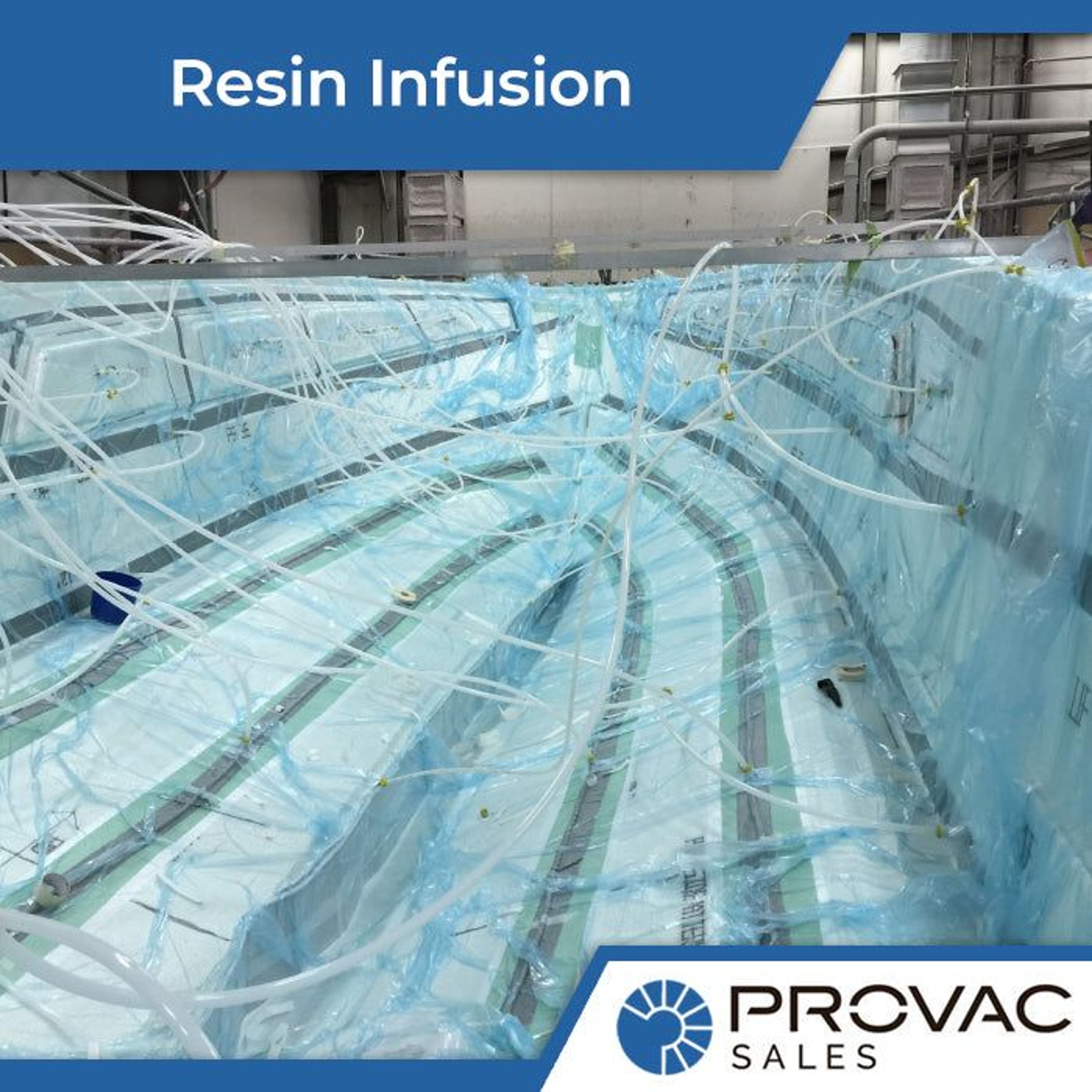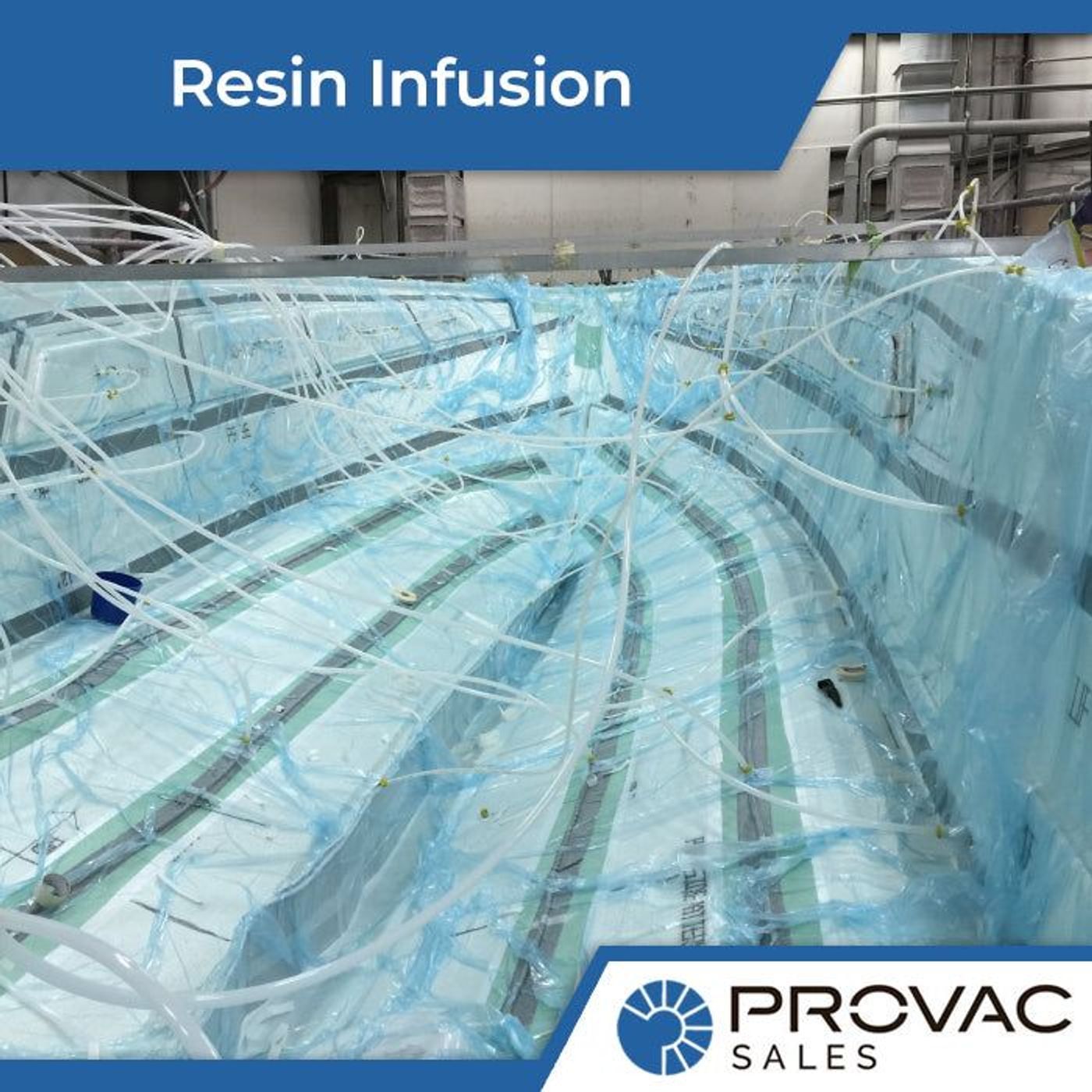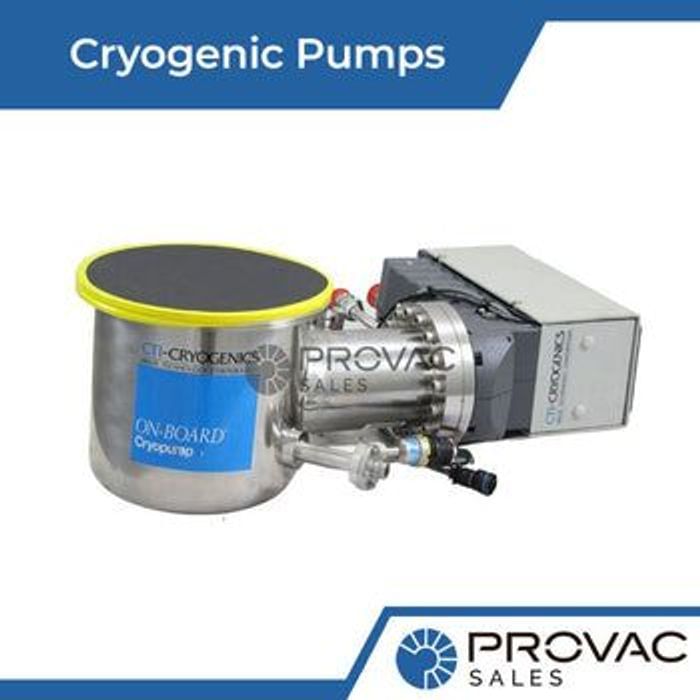Vacuum application spotlight-Resin infusion
When choosing the right fit for your application it is important to consider what level the pump will need to be operating at, what the pump will be pumping on, how closely the pump will be monitored, and how often the pump will be turned off and on.
For many people, the natural instinct can be to go with the biggest, fastest, vacuum pump that can pull the deepest vacuum. But for some applications, such as resin infusion, a pump that can pull a very deep vacuum isn’t the best fit and will not last as long as a properly-sized unit.
In any vacuum application, the constituents of the items you are pulling vacuum on must be considered. For example, will you be pumping on corrosive or reactive materials? Vacuum pumps have different materials of construction for the hard parts (mostly made of metals) and the wear parts (consisting of seals, gaskets, composite materials etc). For example, if you have a chemical in your process such as Ammonia, it will be important to consider Ammonia’s reactivity to the common seal material, Viton, which is found in many “standard construction” pumps. In this case, a chemical-style pump may be selected which has additional purging features, and/or different less-reactive seal types.
It is also important to consider that at different substances will outgas and different vacuum levels. As you reach a deeper ultimate vacuum you will be lowering the boiling point for solvents and various materials that can outgas. For example, you may want to outgas water vapor from your product, but not want to pull such a deep vacuum that you outgas other materials.
In resin infusion applications, a rough vacuum is usually ideal, and an industrial single-stage oil seal rotary vane pump is often a popular choice. The benefits of an oil sealed vane pump are that they are less expensive than other types to acquire and maintain, they have fluid which can be changed when contaminated, and they are fast. Single stage oil seal vane pumps are designed to run at a rough vacuum where returning to atmosphere is not as damaging to the pump, versus a two stage pump which can pull to a deeper ultimate vacuum level. A common byproduct of running an oil sealed vane pump at a rough vacuum level is the creation of more oil mist out of the exhaust. To account for this, most single stage oil sealed vane pumps contain internal mist filters and recirculating features to return the excess oil from the exhaust chamber to the main pumping chamber.
Provac Sales, Inc. offers rebuilt and new single stage oil pumps from the most popular manufacturers including Airtech, Becker, Busch, Edwards, Tuthill, and more. Contact us today for a quotation.





